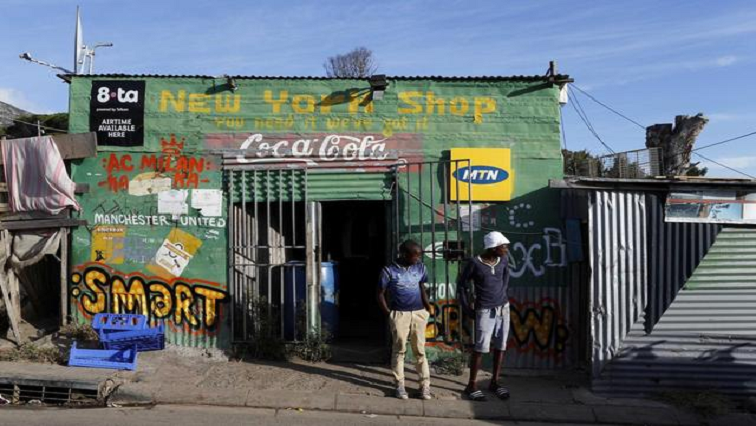Growth of spaza shops across villages and townships is starting to gain recognition from big consumer goods manufacturers. This informal market has helped many brands that were previously unknown to gain market share in townships.
This past week, Tiger Brands partnered with several spaza shops to maintain its strong market share that is being threatened by new and cheaper brands.
South African townships and villages have seen an unprecedented growth of informal corner shops – mostly owned by foreign nationals.
Some items such as Score energy drink, Mofaya energy drink, Go-Slow chips and Simba Munchies have become popular in the township economy and had previously not been seen in big retail stores. These brands have been slowly taking the market share away from big names like Tiger Brands and Premier.
Soweto Business Access says it is beneficial to be part of the township economy and that it’s not just fast-moving consumer goods (FMCG) companies that have seen the growth potential in the informal sector.
Chair of Soweto Business Access, Mphuthi Mphuthi says, “So, it does show that if you align with township consumers, you are guaranteed support. So, we look forward to even bigger brands coming on board, especially given that the financial sector has also come on board. I mean we’ve got people like Blue Label Telecoms who are now introducing devices into our township, allowing our people to be able to pay without necessarily using cash. So, those are innovations that we welcome because they make sure that township can be equally respected.”
Economic Migrants
Twizza is one of the first companies that took advantage of the strong growth in the spaza shop market to grow their brand 20 years ago.
Twizza’s CEO, Lisle Clark says, “So, the wholesale market in South Africa is less than 40% of the entire market but it has contributed to more than 70% of our business. We’d like to believe we redefine the route – to – market in wholesale for soft drinks. When we first entered the market, it wasn’t common to find the market leader or soft drinks in a wholesaler. It was just too expensive. You had your lower end consumers buying mixer drink products as opposed to carbonated soft drinks. It was seen as quite a luxury. So us being able to provide an affordable product actually created a market for soft drinks within wholesale.”
The sad reality is that growth in the informal corner shops is driven largely by economic migrants from Somalia, Ethiopia, Pakistan and Afghanistan.
Mputhi says the Community Public Private Partnership will help with these challenges.
“We are seeing an emergence of a partnership between community, the private sector and the public sector in what is known as the CPPP (Community Public Private Partnership) and you are then going to see communities saying we are going to be able to protect companies that are employing South Africans because other people that are operating within the informal sector are mostly foreign nationals. They don’t employ our people and they have been part of the channel that has been used by products that are producing and supplying unhealthy products and, in the process, making our communities sick.”
But the business savvy demonstrated by these foreign nationals cannot be ignored.
Garth Fraser is the Route to Market manager for Tiger Brands. “So, route – to – market in a nutshell is how do we get the product to the trader who is going to engage with the shopper to a consumer and I guess what is the shortest possible route to get into the trader onto its shelf. To obviously engage with our supplier.”
For some of the spaza shop owners, the partnership will bring more choice for their customers.
Ibrahim Mohammed and Billy Maduba are both shop owners, operating in the informal sector.
“Since the brand has come in, customers more I get them. Everything I get them. I get more and more customers to come closer to my shop.”
“It makes a lot of difference just because of now we can see the progress in terms of sales whereby there are areas that they actually take us with their sales reps from Tiger Brands. That makes a big difference.”
The South African FMCG market has grown at an average rate of 6.7% between 2018 and 2023, faster than the modern market.
By 2030 small retailers are anticipated to create 70% of all new jobs.






